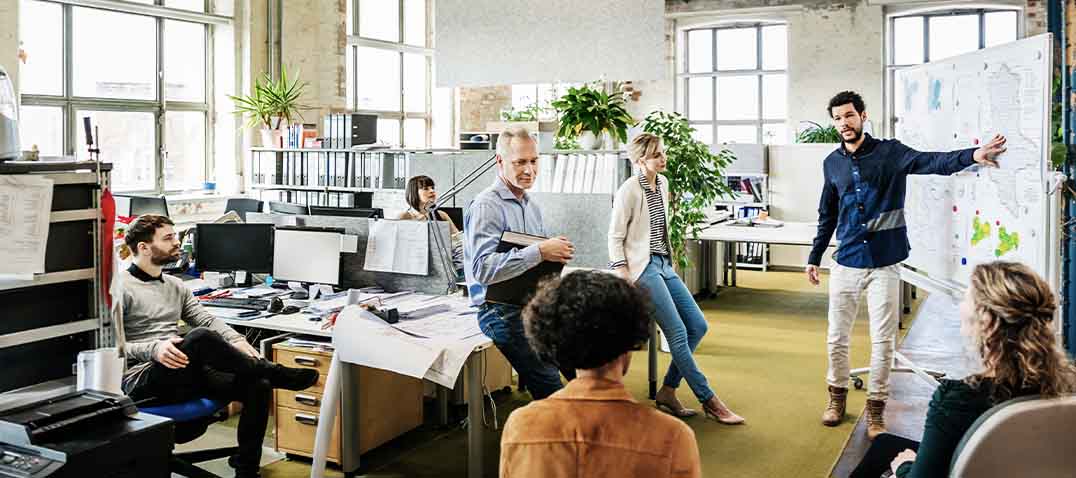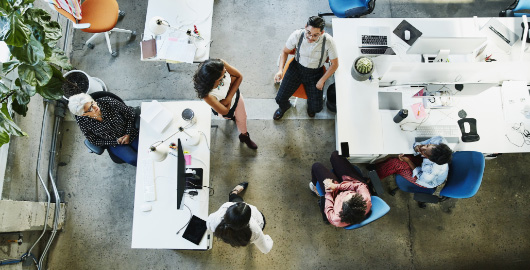Successive waves of covid changed us so businesses now need to keep up with a rapidly changing workforce with approximately 2 million employees saying they're very likely to consider leaving in the next 6 to 12 months. Employees want more control over the role of work in their lives and the environment's prioritising mental health are attracting waves of talent, Allianz presents the workplace wave.
There are five key areas where employees are feeling impacted by the workplace wave, workplace relationships, flexibility and talent fatigue and fallout, organisational responsiveness and mental health support.
So let's dive a little deeper into each one.
Caption: Workplace relationships
Julie Mitchell, Chief General Manager of Personal Injury, Allianz Australia: We're seeing trends like the great resignation, quiet quitting loud leaving. It really is a time where the empowerment of the employees heightened. So having leaders that are well equipped to understand the needs and motivators of their employees is crucial.
Dr Mark Cross, Consultant Psychiatrist: Workplace relationships are dynamic in terms of friendships and working together and you need some form of positive interaction with your colleagues and your manager in terms of doing your best.
Caption: Flexibility & talent
Julie Mitchell: Some of the other trends we're saying really relate to what we're seeing with employee retention and turnover and the scarcity of talent that exists within our market with skill shortages.
So post pandemic, what does that workplace of the future look like and how to work places respond to be able to attract, retain and keep healthy employees in the workplace in a post-pandemic world.
Dr Mark Cross: They want the workplace to adapt in that way that they feel valued that they heard that they needs can be met and that workplace can adapt to those needs.
Caption: Fatigue and fallout
Julie Mitchell: Workplace fatigue is really talking to the fact that after a number of years of working in a fairly relentless way from home with the boundaries between work and home were really blurred for a couple of years. Now people are tired. So leaders being trained and equipped, it is really going to be very important as a retention strategy.
Caption: Organisational responsiveness
Julie Mitchell: It’s really ensuring that the organisation is responding to the trends that we're seeing but also thinking through how workplaces are changing and evolving into the future.
Caption: Mental health support
Dr Mark Cross: You have to have a culture that welcomes discussion of mental health issues. You have to have managers and those in senior roles trained in the mental health preparedness because mental health is part of workplace health and safety.
Julie Mitchell: There's one in four of our people that we work alongside that are experiencing some sort of mental health condition. Have you got the right working environment in place to ensure that people are able to bring in mental health conditions and flourish.
The workplace wave is constantly evolving and so are the responses to mitigating its effects. Everyone feels moments of vulnerability, so it's up to organisations to create safe, transparent and empowering cultures backed by robust training and policies to support their people. Because when organizations prioritize mentally healthy environments we see them thrive.
Caption: The modern workplace is changing. Keep scrolling to learn more about the workplace wave.





